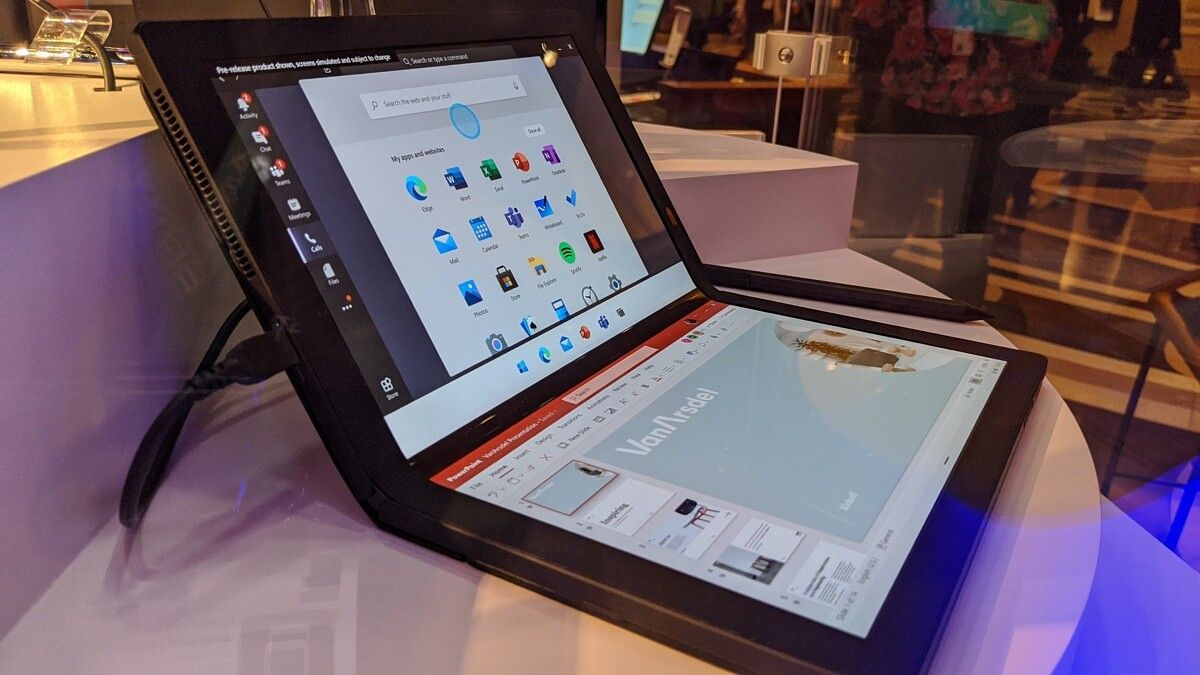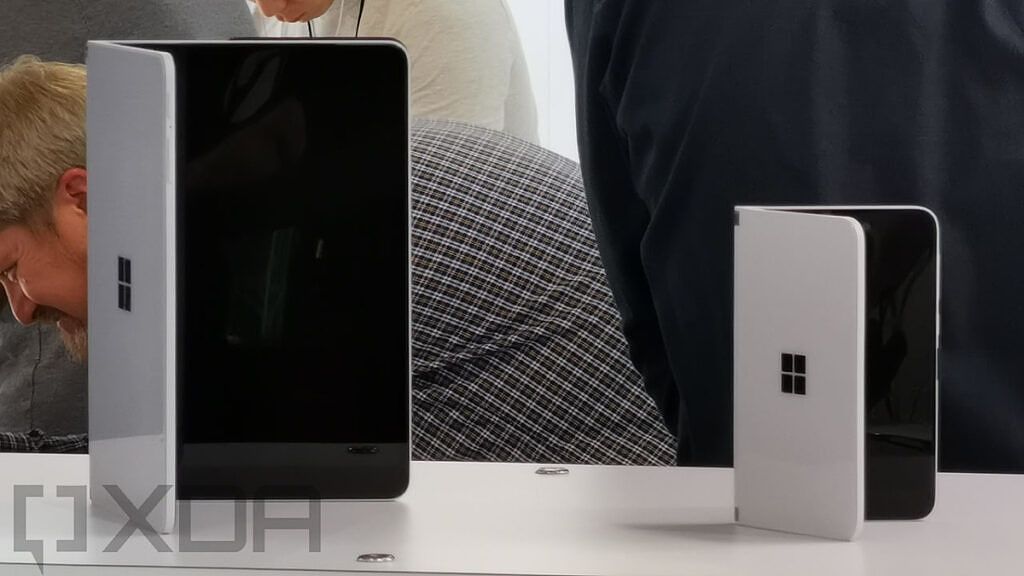Two years ago, Intel's Lakefield processors were something of a big deal. They were Intel's first attempt at replicating the big.LITTLE architecture that we see on ARM chips. Of course, Intel isn't one to admit that it makes little anything, so Intel's Hybrid Technology was called big-bigger. Now, Intel Lakefield is being discontinued, or at least beginning Intel's long process of being discontinued.
It also wasn't very good. The processors, which only came in Core i3 and Core i5 variants, had five cores. There was a single big core, which was along the lines of a Y-series chip, and then there were four little cores, which were along the lines of Atom processors.
Intel's Lakefield CPUs only shipped in a handful of products, like the Lenovo ThinkPad X1 Fold and the Samsung Galaxy Book S. They were made for new form factors, like the foldable screen on the ThinkPad X1 Fold.
But also, they were for dual-screen devices like Microsoft's Surface Neo, a product where it's looking more and more like it won't see the light of day. The Surface Neo was set to run Windows 10X, Microsoft's dual-screen operating system that was actually announced alongside the Neo. But eventually, Windows 10X was repurposed for single-screen devices, citing wanting to meet people where they're at, even though you'd have to buy a new device anyway.
Microsoft said it was pushing back its dual-screen device plans until they made sense. It shipped the Surface Duo anyway. Some thought that with Windows 11 on the way, the Surface Neo might make a return. It hasn't, and if it does, it's going to need a different CPU.
But even if this didn't happen and the Surface Neo shipped later this year, it would be shipping with old hardware. Of course, the Surface Duo shipped with last-gen hardware, and by now, it's two generations old. It would just seem like Intel would have a replacement in the pipeline. Perhaps, plans between Microsoft and Intel to create dual-screen and foldable devices have simply been scrapped.
There are other alternatives, of course, such as using ARM processors. Intel also isn't simply throwing its Hybrid Technology in the trash. It's already said that its next-gen 'Alder Lake' processors are going to use it to some degree. Presumably, the firm has learned some lessons and will do a better job of it.
The last product discontinuance shipment date for Intel's Lakefield chips is set to be April 29, 2022.


